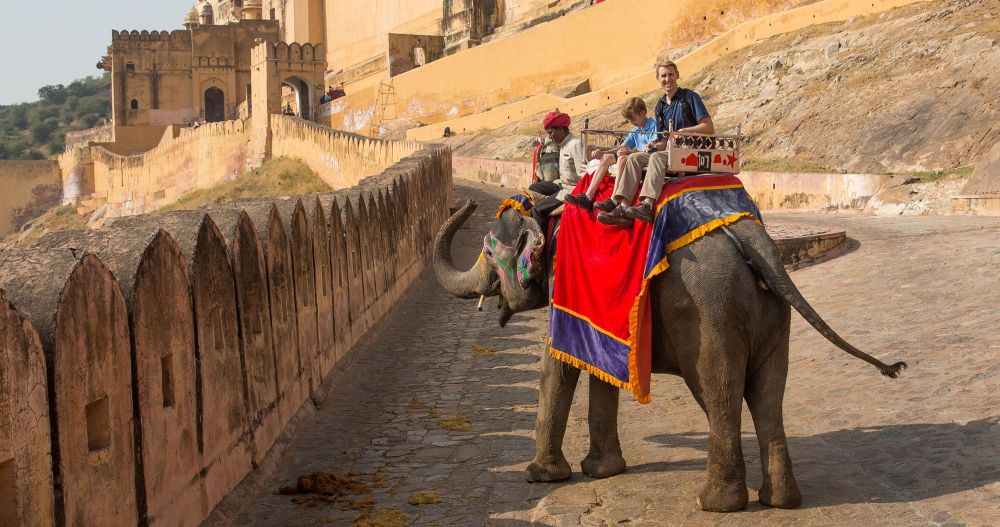Rajasthan Government Orders to Remove Medically Unfit Elephants from Amer Fort
Elephants giving tourist rides is no news in India. Since the ancient times when kings ruled over the Indian subcontinent, this trend has employed many elephants, regardless of the physical and mental toll on the animals. These behemoth animals are still taught to give rides to tourists, participate in various ceremonial events, and being tied to chains. Therefore, the Rajasthan government’s orders to remove 20 medically unfit elephants for tourist rides at Amer Fort has come as a welcome decision.
On February 5, 2021, following the recommendations by the committee constituted by the Project Elephant Division of the Ministry of Environment, Forest, and Climate Change and appeals made by PETA India to implement those recommendations, the Rajasthan government has ordered to remove medically unfit elephants from Amer Fort.

Orders to remove 20 medically unfit elephants for tourist rides at Amer Fort has come as a welcome decision | Image: Earth Trekkers
The Rajasthan Forest Department directed the Department of Archaeology and Museums to stop using 20 medically unfit elephants for tourist rides at Amer Fort. Following the orders, the medically unfit elephants include three who have tuberculosis, a few suffering from impaired vision, and chronic foot problems, and old and malnourished animals will be removed from the historical site.
The change comes as a result of a proposal for phasing out elephant rides at Amer Fort by replacing them with electric vehicle rides, which was made last year. The central government committee noted that of the 98 captive elephants who were inspected, 22 suffer from impaired vision resulting from corneal opacity and cataracts and 42 have chronic foot problems, including overrun nails and flat footpads from habitually walking on concrete roads!
Reportedly, 29 elephants were found to be above the age of 50, which is the average life expectancy of an elephant in confinement. The committee also advised in its report that elephants and mahouts be screened for TB twice a year.
However late, but the decision has brought some joy to the conservationists fighting for the cause. It can only be hoped that this trend ends soon and animals will be released into the wild where they can thrive.


